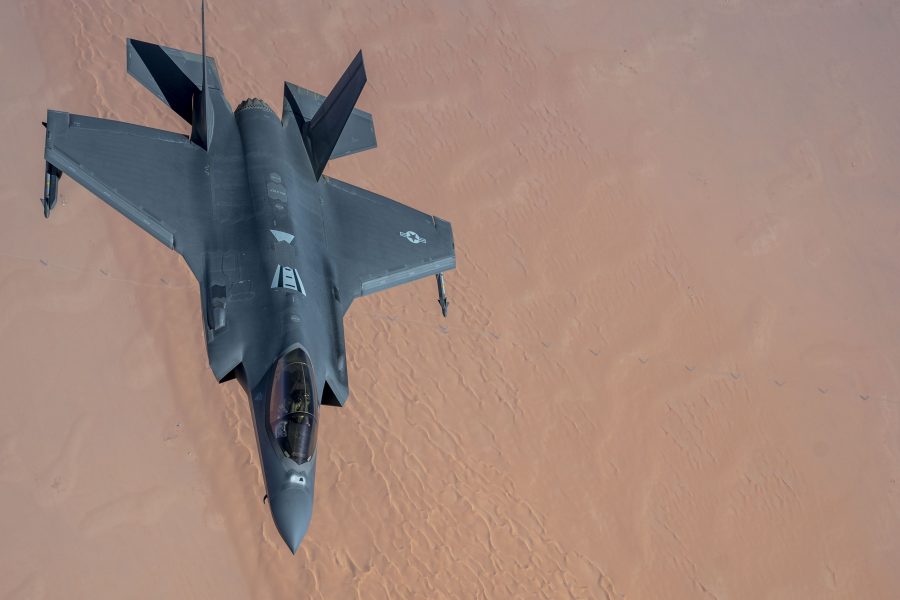President Donald Trump said he plans to sell F-35 Lightning II stealth fighter jets to Saudi Arabia, announcing his decision Nov. 17, a day before he meets the country’s Crown Prince Mohammed bin Salman at the White House.
“We will be doing that. We’ll be selling F-35s,” Trump told reporters in the Oval Office when asked about a possible sale of the Lockheed Martin-made fifth-generation fighters. Trump did not provide specifics of a proposed sale, including how many jets the Saudis are seeking to purchase.
On Nov. 18, bin Salman, the de facto Saudi leader, plans to meet with Trump at White House before attending a formal dinner at the executive mansion. The next day, there will be a U.S.-Saudi investment meeting at the Kennedy Center.
The F-35 deal was widely expected to be a goal of bin Salman’s visit to the U.S., along with access to advanced U.S. technology, including computer chips for artificial intelligence and an agreement to begin talks on civilian nuclear power cooperation.
The crown prince’s visit to the U.S. is his first since the 2018 murder of Jamal Koshigohi by Saudi officials, which ostracized the Saudi leader.
“They want to buy them,” Trump added of the F-35 arrangement with Saudi Arabia. “They’ve been a great ally.”
News reports indicate Saudi Arabia has been seeking to buy some 48 F-35s. The average cost of the most recent lot of F-35s—across all variants—costs around $100 million.
Such a deal could significantly alter the military balance in the Middle East. So far, Israel is the only country in the region with F-35s, which it first took delivery of in 2016 and has used in combat against Iran.
Israel marked the first foreign military sales agreement to buy the F-35 outside the consortium of countries involved in the jet’s development program, and the Israeli Air Force plans to acquire 75 F-35s.
Longstanding U.S. policy, which is enshrined in law, requires America to help Israel maintain its “qualitative military edge” in the Middle East. But the Saudi F-35 deal does not appear to be conditioned on Riyadh normalizing relations with Israel, and it is unclear what, if any, conditions the Trump administration might place on a sale of F-35s.
The U.S. has a longstanding security relationship with Saudi Arabia, which has regularly hosted U.S. Air Force jets at Prince Sultan Air Base. The U.S. has not disclosed whether it currently has any aircraft based there.
Saudi Arabia already flies U.S.-made jets, including F-15SAs, one of the most advanced versions of the fourth-generation fighter. The F-35, however, boasts highly advanced sensors and stealth technology, which the U.S. has sought to protect.
Turkey was booted from the F-35 program for buying Russian S-400 air defense systems and the United Arab Emirates has faced hurdles to acquiring the jet that have so far prevented a sale because of its ties to China.
Some observers are also concerned about Saudi Arabia’s relationship with China. The two nations have conducted joint military exercises.
“Riyadh should satisfactorily address concerns related to China. Washington must also follow the law and take the necessary additional steps in advance to ensure Israel maintains its relative military edge,” wrote Bradley Bowman and Justin Leopold-Cohen of the Foundation for Defense of Democracies.
